Psychology
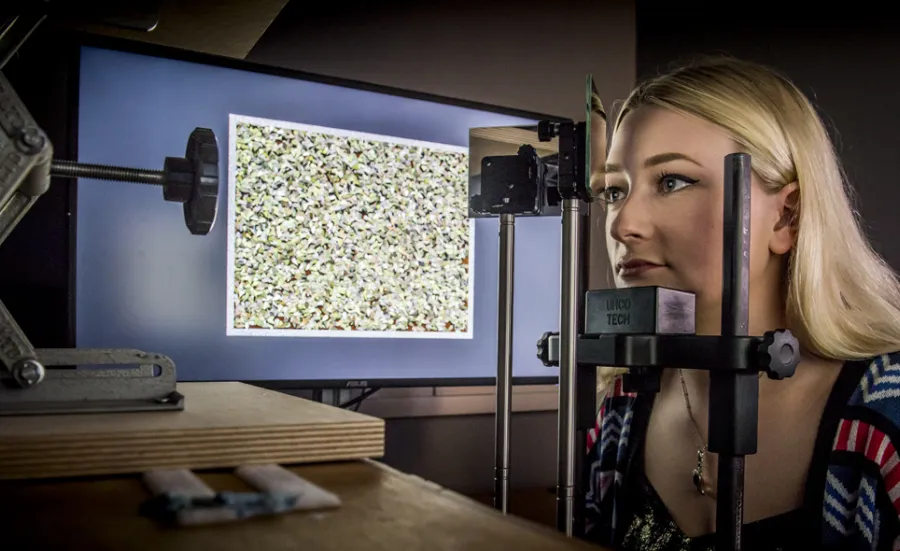
Tackle social, health and educational challenges by making an important contribution to the study of the brain and behaviour. Students join our tight-knit and diverse research community from all over the world.

Tackle social, health and educational challenges by making an important contribution to the study of the brain and behaviour. Students join our tight-knit and diverse research community from all over the world.

You’ll be part of a community of 100 academic staff and 190 postgraduate researchers in a centre rated internationally excellent or world-leading for research impact and environment. You’ll also have access to a wealth of research laboratories and equipment from eye tracking facilities to our psychophysiology lab.
We offer 3 postgraduate psychology research programmes:
We partner with NHS trusts, schools, government and industry and attract investment from all major research funders. The DClinPsych and DEdPsych are accredited by the British Psychological Society (BPS) and approved by the Health and Care Professions Council (HCPC).
Your route to a career in academia and industry. Supported by a team of supervisors you’ll create an original piece of research aligned to our psychology specialisms. You'll report your research results in a thesis and aim to publish your findings in scientific journals and books.
Study a mix of taught and research components. This route gives you eligibility for registration with the HCPC as a clinical psychologist.
You'll learn theoretical and empirical approaches to clinical psychology to develop competence as an applied psychologist and scientist practitioner.
This degree includes core modules in clinical psychology and research methods, a small-scale research project and a research thesis. Practitioner modules give you NHS experience in clinical services. This route is funded by the NHS.
With this professional qualification you can register with the HCPC to work as an educational psychologist. You will be able to work alongside children, young people, their families, and other professionals.
Your first year will be mostly university based with a school-based placement running from September to July. In your second and third years you'll work, with supervision, in different local authority placements to give you experience of educational psychology practise. This route is funded by the Department for Education.
As part of the programme, you'll be allocated a placement through the SEAL consortium. You can find out more information on the South East and London (SEAL) website.
You can view the map for the boundaries of the SEAL region in relation to placements for years 2 and 3.
Academic and Research Handbook
We cover a wide range of topics for the DClinPsych, DEd Psych and PhD, including:
Educational Psychology – edpsych-fels@soton.ac.uk
Tel +44 (0) 23 8059 5321
Clinical Psychology - clinicalpsychology-fels@soton.ac.uk
Tel +44 (0) 23 8059 5320
PhD Psychology - psy-DPD@soton.ac.uk
Email: edpsych-fels@soton.ac.uk , tel.+44 (0)23 8059 5321
You can either apply for a structured studentship or propose your own PhD idea.
We run funded PhD studentships in partnership with doctoral training centres, meaning you'll benefit from enhanced training and guaranteed funding
These studentships are open to UK and international applicants and include:
We offer scholarships and teaching bursaries ourselves. Your potential supervisor can guide you on what is available.
If you’re an international student you may be able to apply for a scholarship from your country.
Find out more about scholarships
Once you’ve found a supervisor, they can help you with potential funding sources. We offer match funding in some cases.
You’ll need to state how you intend to pay for your tuition and fees when you submit your application.
Find out more about funding your PhD
You may be able to fund your postgraduate research with funding from your current employer or from industry.
You can borrow up to £30,301 for a PhD starting on or after 1 August 2025. Doctoral loans are not means tested and you can decide how much you want to borrow.
Find out about PhD loans on GOV.UK
You may be able to win funding from one or more charities to help fund your PhD.
You'll need to pay tuition fees for every year of study. Fees are the same whether you're studying in person or by distance learning. If you're applying for a fully funded project, your fees will be paid for you.
| Subject | UK fees | International fees |
|---|---|---|
| PhD in Psychology Full-time | £5,238 | £27,300 |
| PhD in Psychology Full-time | £2,619 | £13,650 |
| Doctorate in Clinical Psychology (DClinPsych) Full-time | Fees Paid by NHSE £17,500 | Not offered |
| Doctorate in Educational Psychology - year 1 Full-time | Fees Paid by DfE £18,369 | Not offered |
| Doctorate in Educational Psychology – Year 2 and 3 Full-time | Fees Paid by DfE £9,184 | Not offered |
| Subject | UK fees | International fees |
|---|---|---|
| PhD in Psychology Full-time | £5,006 | £29,400 |
| PhD in Psychology Part-time | £2,503 | £13,350 |
| Doctorate in Clinical Psychology (DClinPsych) Full-time | Fees Paid by NHSE £17,500 | Not offered |
| Doctorate in Educational Psychology - year 1 Full-time | Fees Paid by DfE £18,385.63 | Not offered |
| Doctorate in Educational Psychology – Year 2 and 3 Full-time | Fees Paid by SEAL £9,192.81 | Not offered |
| Subject | UK fees | International fees |
|---|---|---|
| PhD in Psychology Full-time | £4,786 | £26,100 |
| PhD in Psychology Part-time | £2,393 | £13,050 |
| Doctorate in Clinical Psychology (DClinPsych) Full-time | Fees Paid by HEE £16,693 | Not offered |
| Doctorate in Educational Psychology - Year 1 Full-time | Fees Paid by DFE £17,795 | Not offered |
| Doctorate in Educational Psychology - Year 2 and 3 Full-time | Fees Paid by SEAL £8,925.10 | Not offered |
Access full fee information from previous years.
You're eligible for a 10% alumni discount on a self-funded PhD if you're a current student or graduate from the University of Southampton. This will not apply for programmes that are externally funded. Please check the fees and funding section.


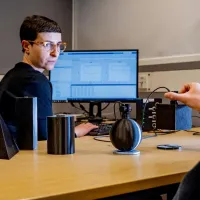

There are 3 doctoral routes in psychology. For the PhD, follow steps 2 to 5. If you're interested in the DClinPsych or the DEdPsych, use the links below.
For the PhD Psychology, please follow steps 2 to 5.
Doctorate in Clinical Psychology (DClinPsych)
Submit your application online at the Clinical Psychology Clearing House.
Doctorate in Educational Psychology (DEdPsych)
Submit your application online with the Association of Educational Psychologists.
Successful applicants will be informed of their interview date before 11 February 2026
Interviews will be held on:
The next Open Evening will be in person at the Highfield Campus in September 2026 from 5pm to 6.30pm. Please register your interest here.
Applicants are short-listed based on the evidence in their application which must show evidence that:
References are required at this stage of the application.
Please note, for the current contract from 2024 onwards, the consortium no longer includes UCL.
Please note that Southampton does not require any specific additional information in this section of the application form. For further information about Educational Psychology and associated training please see the Association of Educational Psychologists website.
To apply for the PhD you must decide whether to apply to an advertised research project or create your own proposal.
It's a good idea to email potential supervisors to discuss the specifics of your project. It's best to do this well ahead of the application deadline.
You’ll find supervisors’ contact details listed with the advertised project, or you can search for supervisors in the staff directory.
You’ll need to send us:
The application process is the same whether you're applying for a funded project, or have created a research proposal.
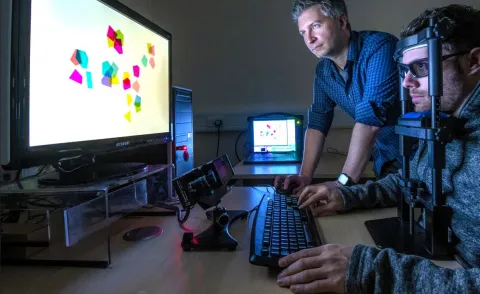
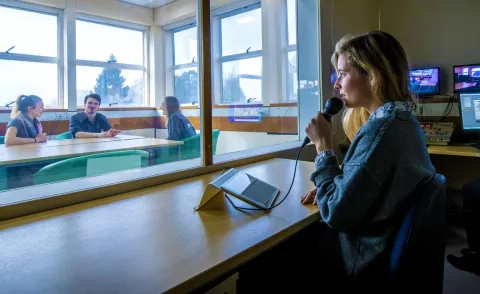
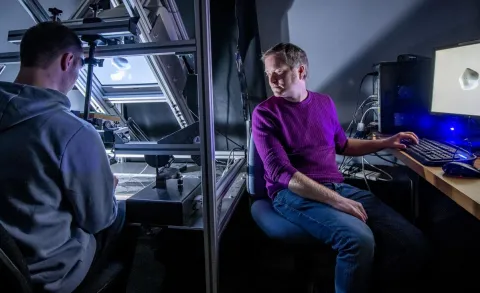
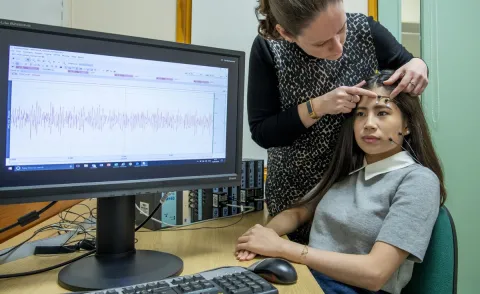
You’ll need to have a:
You’ll need to have:
For detailed entry requirements visit Southampton's page on the Clearing House for Postgraduate Courses in Clinical Psychology website.
You’ll need:
All successful DEdPsych applicants will be assessed for a enhanced Disclosure Barring Service (DBS) check (formerly CRB). Disclosure of criminal convictions will be assessed on an individual basis according to the University student convictions policy and the School of Psychology Fitness to Practise policy. Further information regarding DBS can be obtained from the DBS website.
For detailed entry requirements visit the Association of Educational Psychologists website.
Visit our global pages to find equivalent international qualifications.
If English is not your first language, you'll need an IELTS minimum level of 6.5 with a 6.0 in writing, reading, speaking and listening.
For Health and Care Professions Council approved courses, you'll need an IELTS minimum level of 7.0 with a 6.5 in writing, reading, speaking and listening.
For EdPsych and ClinPsych you'll need an 8.0 in each component.
If you need further English language tuition before starting your degree, you can apply for one of our pre-sessional English language courses.
Check the specific entry requirements listed on the project you’re interested in before you apply.
We offer PhD research and doctoral training programmes.
Programmes have a minimum and maximum duration, known as the candidature. Your candidature ends when you submit your thesis.
| Degree type | Duration |
| Psychology PhD full time | 2 to 4 years |
| Psychology PhD part time | 3 to 7 years |
| Clinical Psychology DClinPsych full time only | 3 to 5 years |
| Educational Psychology DEdPsych full time only | 3 to 5 years |